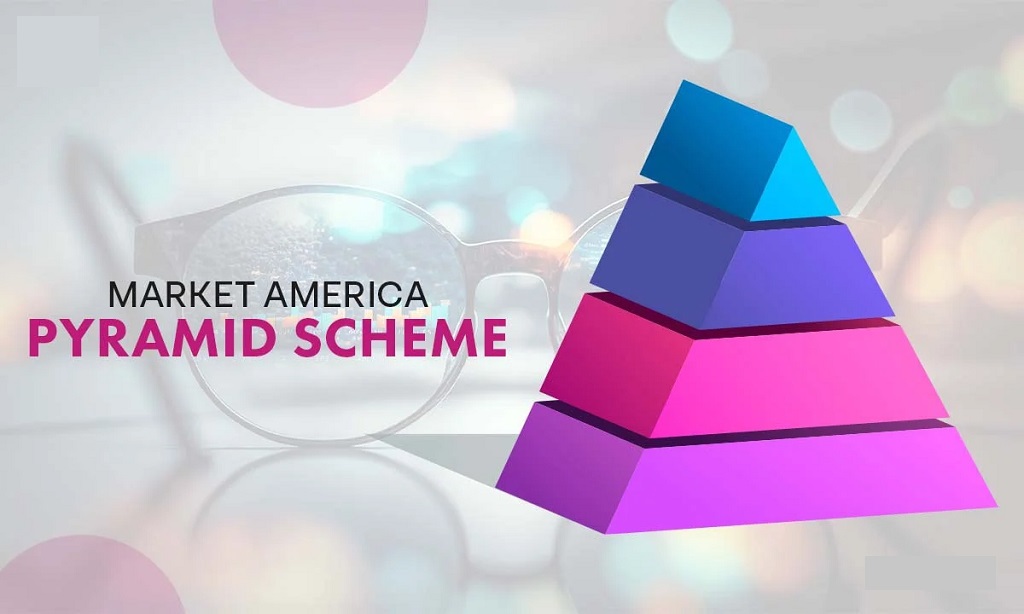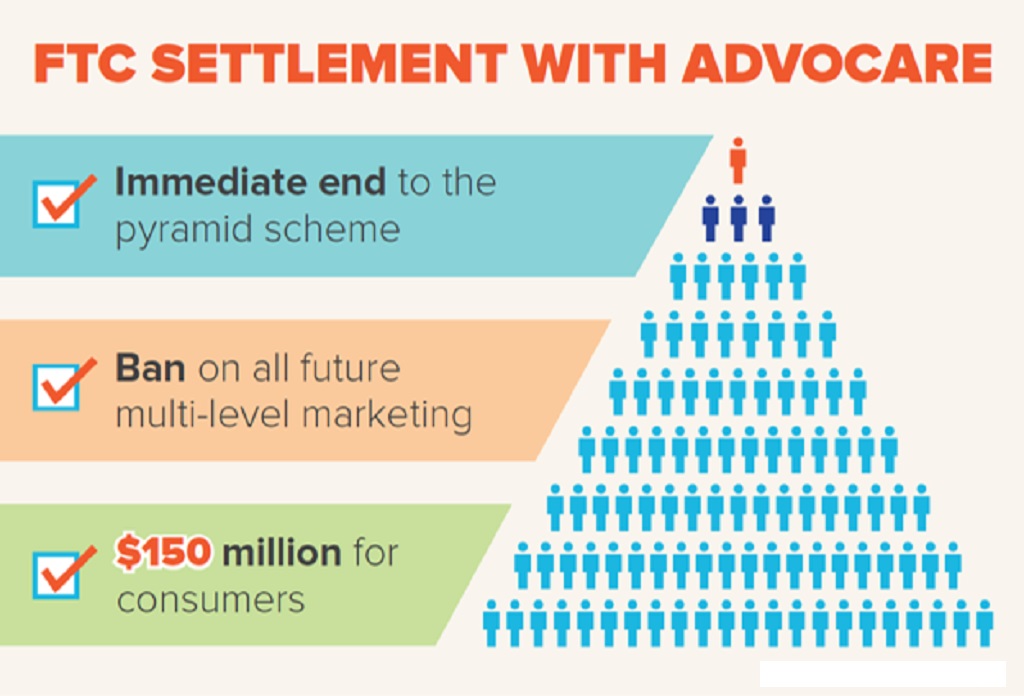
30 Jan Market America Pyramid Scheme Exposed: Unveiling the Truth
Market America is not a pyramid scheme and has operated legally for many years. Despite some negative criticism, it is a legitimate multi-level marketing company.
Market America is a well-known multi-level marketing company that has sparked debates about its business model. Some people claim that it is a pyramid scheme, while others argue that it operates legally within the bounds of the law. We will delve into the intricacies of Market America’s business structure to determine the veracity of these claims.
By understanding the nature of multi-level marketing and analyzing Market America’s practices, we can comprehensively understand its legitimacy. So, let’s explore the fundamental aspects of Market America and shed light on the pyramid scheme allegations.
Unveiling The Truth

Market America has sparked controversy and debate in recent years. Its unique business model has left many wondering if it is a legitimate opportunity or a deceptive pyramid scheme. In this article, we will uncover the truth about Market America and provide a clear understanding of how it operates.
History Of Market America
Understanding Market America’s history is crucial in determining its legitimacy. Founded in 1992 by James Ridinger, the company claims to offer entrepreneurs the chance to build successful online businesses. Market America presents itself as a credible multi-level marketing (MLM) company, but some have raised concerns about its true nature.
Understanding Pyramid Schemes
Pyramid schemes are illegal practices that disguise themselves as legitimate businesses. They typically promise high returns on investment through recruitment rather than selling actual products or services. The primary focus in pyramid schemes lies in building a network and continuously recruiting new members, who in turn recruit more members. The structure of such schemes ultimately collapses when recruitment slows down, leaving the majority of participants with significant financial losses.
Market America’s business model does bear some similarities to a pyramid scheme, which has led to skepticism and accusations against the company. It places a strong emphasis on recruiting new independent distributors, who are then encouraged to recruit others beneath them. However, Market America argues that it differentiates itself from pyramid schemes by offering tangible products and services. Distributors earn commissions not only from recruitment but also from the sales made by their recruits.
While this may seem legitimate initially, critics argue that the primary focus remains recruitment rather than product sales. They claim that the compensation plan heavily favors those at the top of the pyramid, making it difficult for most distributors to achieve substantial profits. Additionally, the company’s success is often showcased through testimonials from a select few, creating a skewed perception of the overall potential for success. This perspective is further explored in various discussions on https://linkfeel.com/, where similar concerns are echoed by other critics.
It is important to note that the Federal Trade Commission (FTC) has cracked down on numerous pyramid schemes in the past. This serves as a reminder to carefully evaluate any business opportunity, including Market America, before investing time and money.
While Market America presents itself as a legitimate MLM company, concerns surrounding its business model have led some to question its classification as a pyramid scheme. It is crucial for individuals considering involvement with Market America to conduct thorough research and carefully weigh the risks and rewards. By staying informed and cautious, individuals can make educated decisions about their involvement with Market America and similar business opportunities.
The Controversy
The term “pyramid scheme” has long been associated with Market America, a multi-level marketing company founded in 1992 by JR and Loren Ridinger. While some supporters argue that Market America is a legitimate business opportunity, others allege that it operates as a pyramid scheme, raising concerns about its business practices and legality. Let’s take a closer look at the controversy surrounding Market America and the allegations and legal issues it has faced.
Allegations And Legal Issues
Market America has faced numerous allegations and legal issues throughout its existence. Critics argue that the company’s business model resembles a pyramid scheme, where the primary focus is recruiting new participants rather than selling products or services.
One of the most significant legal battles involving Market America occurred in 2009 when it was sued by the State of California and settled for $8.5 million. The lawsuit alleged that the company engaged in deceptive marketing practices and false income claims, misleading individuals to believe they would earn substantial profits by joining Market America.
Moreover, Market America has been subjected to investigations by regulatory authorities in various countries. In China, for example, the company faced scrutiny by the government due to allegations of illegal pyramid practices, raising questions similar to those asked in the debate is Alphasights a pyramid scheme. These investigations resulted in the closure of Market America’s operations in the country, highlighting the concerns over its business model.
Deceptive Marketing Tactics
Another prominent aspect of the controversy surrounding Market America is its use of deceptive marketing tactics. Critics argue that the company employs misleading strategies to lure individuals into joining its network of distributors.
Market America’s promotional materials often feature extravagant claims about its participants’ income potential and success stories. However, many former distributors have disclosed that these claims are exaggerated or unrealistic. Such marketing tactics can mislead individuals into investing their time and money into a system that may not provide the promised financial rewards.
In addition, Market America encourages its distributors to purchase a significant amount of inventory, known as the Business Development System (BDS), which can cost thousands of dollars. Critics argue that this requirement has more to do with generating revenue for the company than with actual product sales. The emphasis on personal consumption and recruitment rather than retail sales raises questions about the sustainability and fairness of the business model.
While Market America continues to deny allegations of operating as a pyramid scheme, the controversy surrounding the company persists. Concerns regarding its business practices and legal issues raise doubts about its legitimacy and long-term viability as a viable business opportunity.
Unraveling The Scheme
Pyramid Scheme Characteristics
Pyramid schemes are notorious for their deceptive and unsustainable business models. These schemes often involve recruiting individuals to join the program and earning commissions by bringing in new participants. However, the focus is primarily on recruiting others rather than selling products or services. The key characteristic of a pyramid scheme lies in the emphasis on recruitment and the promise of high returns, which often result in financial losses for most participants.
Victims’ Experiences
Victims of pyramid schemes frequently share similar experiences of monetary loss and disappointment. Many individuals are lured into these schemes with promises of easy money and financial freedom, only to realize that the reality is far from their expectations. The pressure to recruit others and constantly pursue new participants often leads to financial hardship and frustration for those involved. It is essential to shed light on the real-life stories of individuals who have fallen victim to these deceitful schemes to raise awareness and prevent further exploitation.
Impacts And Consequences
The impacts and consequences of being involved in a market American pyramid scheme can be severe. Participants may experience financial loss and damage to their reputations. These schemes often lead to legal issues and can negatively affect individuals and their families.
Financial Losses
Market America Pyramid Scheme often leads unsuspecting individuals to suffer significant financial losses. Participants are drawn into the scheme with promises of quick and easy returns on their investments, but in reality, it is the few individuals at the top who benefit the most. The structure of the pyramid scheme relies on the continuous recruitment of new participants, making it unsustainable in the long run. As the pyramid grows larger, it becomes increasingly challenging for new members to generate profits, resulting in financial losses for the majority of participants.
Psychological Effects
Participating in a Market America Pyramid Scheme can have severe psychological effects on the individuals involved. The initial excitement and hope for financial success often turn into feelings of frustration, disappointment, and shame. Participants may blame themselves for their failure, believing they did not recruit enough people or work hard. This pressure to continually recruit and meet unrealistic targets can cause stress, anxiety, and even depression. Moreover, relationships can be strained as friends and family members may feel pressured to join or invest in the scheme, leading to conflicts and betrayal.
The Fight Against Market America

Market America, a controversial multi-level marketing (MLM) company, has drawn attention from regulators and activists due to allegations of being a pyramid scheme. The fight against Market America involves regulatory actions and victims’ advocacy efforts.
Regulatory Actions
Various regulatory bodies have questioned the legality of Market America’s business model. In recent years, these bodies have taken action to investigate and address the allegations against the company. Some notable regulatory actions include:
- United States Federal Trade Commission (FTC) investigation into Market America’s business practices and potential pyramid scheme.
- State regulatory agencies issued warning letters and cease-and-desist orders to Market America and its independent distributors.
- Fines and penalties imposed on Market America for deceptive marketing practices and false income claims.
These regulatory actions highlight the growing concern and scrutiny surrounding Market America and its MLM model.
Victims’ Advocacy Efforts
Market America’s alleged pyramid scheme victims have been fighting back and advocating for justice. Through the efforts of advocacy groups and individual victims, they aim to expose the company’s deceptive practices and prevent others from falling into the same trap. Some victims’ advocacy efforts include:
- Sharing personal stories and experiences of financial loss and deception caused by Market America’s business model.
- Seeking legal action against the company for fraud, misrepresentation, and other wrongdoing.
- Raising awareness and warning others about the potential risks associated with MLMs, particularly Market America.
Victims’ advocacy efforts are crucial in shedding light on the negative impact of Market America’s alleged pyramid scheme and helping potential victims make informed decisions.
Frequently Asked Questions On Market America Pyramid Scheme
Is Market America A Pyramid Scheme?
Market America is not a pyramid scheme. It is a legitimate multi-level marketing company that sells products through independent distributors. They generate income from product sales, not recruitment.
Conclusion
In light of the complexities surrounding Market America, it’s crucial to thoroughly evaluate its business model before making any decisions.
Ultimately, it’s important to conduct thorough research and seek reputable guidance before determining the legitimacy of any business opportunity.
